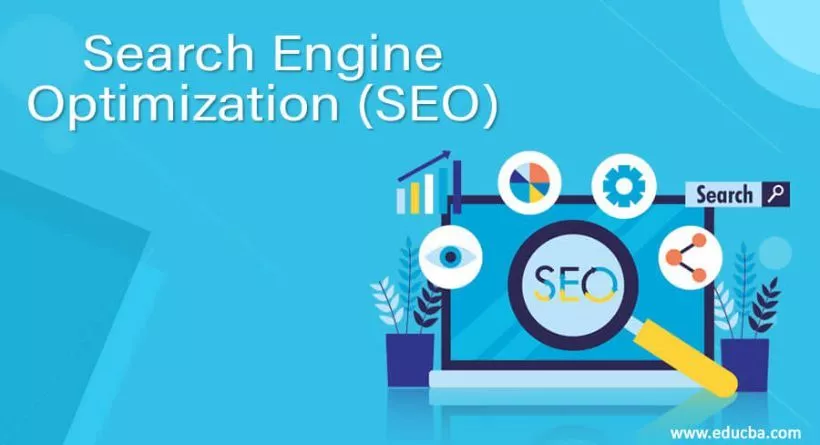Are you struggling to determine the website cost for your new venture? You’re not alone. Many aspiring entrepreneurs and small business owners face the same issue when trying to launch their online presence. Accepting that determining the cost of a website can be a daunting task, this blog post is designed to resolve your concerns and make the process more manageable. By providing an overview of the factors that influence website costs, we promise to help you find a solution to this problem.
In this comprehensive 2023 guide, we will break down the various components that contribute to website cost, from domain registration and hosting to design and development. By addressing the pain points associated with estimating these expenses, we aim to give you the tools and knowledge needed to make informed decisions for your online project.
Domain Registration and Hosting
Importance of Domain and Hosting in Website Cost
The first step in launching a website is securing a domain name and choosing a hosting provider. These foundational elements play a significant role in your website cost. Your domain name is your website’s unique address, representing your brand and making it easy for customers to find you online. Meanwhile, a hosting provider stores your website files and makes them accessible to users.
Various Domain Registration Options
Domain registration can be relatively inexpensive, or it can cost hundreds of dollars, depending on factors such as the domain extension (.com, .org, .net, etc.), the domain registrar, and the length of registration. You might find some domain names priced higher due to their premium status, meaning they’re considered more valuable. Keep in mind that you’ll need to renew your domain annually, so consider these ongoing costs when calculating your website cost.
Hosting Providers and Their Impact on Cost
Hosting providers offer a range of plans and services that can significantly impact your website cost. Options include shared VPS, dedicated, and cloud hosting. Shared hosting is the most affordable, but it may not be suitable for larger websites with high traffic. As you scale up in hosting types, the costs increase, but so do the performance, security, and customization options. It’s crucial to evaluate your website’s needs and budget when choosing a hosting provider.
Also read: 5-Steps To Start A Real Estate Brokerage & Actually Make Money
Website Design and Templates

Custom vs. Pre-made Templates
A crucial aspect of a website’s cost is the design. You can opt for a pre-made template or a custom design tailored to your brand. Pre-made templates are typically more affordable and can save you time, but they may lack the uniqueness and flexibility a custom design offers. Custom designs are more expensive but provide a personalized look and feel that sets your website apart from competitors.
The Role of User Experience (UX) in Website Cost
User experience (UX) is essential for any website, as it impacts how users interact with your site and whether they’ll return. An intuitive, visually appealing, and user-friendly website design can increase engagement and conversions, but it may also raise your website cost. Investing in UX is often worth the expense, as a positive user experience is more likely to lead to satisfied customers and a higher return on investment (ROI).
Factors Affecting Design Pricing
Design pricing can be influenced by various factors, including the designer’s experience, the complexity of the design, and the number of revisions required. Additional elements such as custom graphics, multimedia integration, and responsiveness (how the site adapts to different devices and screen sizes) can also impact the overall website cost. Balancing your design needs with your budget is essential for optimizing your site without breaking the bank.
Website Development and Functionality
Content Management Systems (CMS) and Their Influence on Website Cost
A content management system (CMS) is the backbone of your website, allowing you to create, edit, and manage content with ease. Popular CMS options include WordPress, Joomla, and Drupal. Each CMS has its own set of features, ease of use, and cost. Some are free, while others require a subscription or a one-time fee. The choice of CMS can greatly impact your website cost, so carefully consider which one best meets your needs and budget.
Custom Features and Integrations
The complexity and functionality of your website directly affect your website cost. Custom features and integrations, such as contact forms, live chat, or social media feeds, require more development time and expertise. These additions can significantly increase your website cost but can also provide valuable benefits to your users and help your site stand out from competitors.
ECommerce Functionality and Its Impact on Cost
eCommerce capability is a need if you intend to sell goods or services on your website. You can handle and accept payments, maintain inventory, and complete orders using e-commerce capability. Depending on the size and complexity of your online business, the price of eCommerce capabilities may change. Shipping expenses, transaction fees, and fees for processing credit cards are possible extra expenditures.
There are a variety of eCommerce platforms available, each with a unique set of features and costs. WooCommerce, Shopify, Magento, and BigCommerce are a some of the most well-liked eCommerce systems. The best platform should be chosen for your website based on its requirements and financial constraints in order to control costs.
Custom features and integrations are one of the main aspects that influence the price of an eCommerce website. Custom features that improve the user experience and boost sales include product filters, user reviews, and wishlists. Integrations with third-party platforms, such social networking or email marketing tools, can also aid in the promotion and traffic growth of your online business. However, because they can raise the price of the website, custom features and integrations must be carefully weighed against your spending limit.
Speed and performance of the website, in addition to eCommerce functionality, are important aspects of website cost. Poor user experience or slow-loading websites can cost you sales and harm the reputation of your company. The cost of your website can be considerably impacted by investments in website optimization and performance, but they can also provide you a competitive edge.
Also read: How to Register and Log in Yourself to JAA Lifestyle Login Portal
Website Maintenance and Security
Ongoing Website Maintenance Costs
Website maintenance is a crucial aspect of your online presence that impacts website cost. Regular updates and fixes ensure your website remains functional and up-to-date. Maintenance costs can include CMS updates, plugin and theme updates, and troubleshooting technical issues. Depending on the complexity of your site, maintenance costs can range from a few dollars per month to several hundred dollars.
Security Measures and Their Effect on Website Cost
Securing your website is essential to protect sensitive data and maintain user trust. Implementing security measures like SSL certificates, firewalls, and malware scanning can increase website costs. However, investing in security now can save you from costly data breaches and damage to your reputation in the future. Balancing security needs with your budget is vital for a successful online presence.
The Importance of Keeping Your Website Up-to-Date
An outdated website can lead to poor user experience, compatibility issues, and reduced search engine rankings. Regular updates and maintenance not only help your website function smoothly but also ensure it stays relevant and engaging to users. Keeping your site current is a long-term investment that can significantly affect your website cost and overall success.
Search Engine Optimization (SEO) and Content Creation

The Role of SEO in Website Cost
Search engine optimization (SEO) is a critical factor in driving organic traffic to your site. By optimizing your website for search engines, you increase its visibility and potential for attracting new customers. SEO services, such as keyword research, on-page optimization, and link building, can influence website costs. While investing in SEO can be expensive, the long-term benefits often outweigh the costs.
Costs Associated with Content Creation
Content is king when it comes to attracting and retaining users on your website. High-quality, engaging content is essential for a successful online presence. The costs associated with content creation can vary depending on the type of content, the frequency of updates, and the expertise required. Whether you’re creating blog posts, videos, or interactive elements, consider the costs and benefits when planning your website budget.
Strategies for Maximizing SEO on a Budget
While SEO can be expensive, there are ways to maximize your efforts on a budget. Start by focusing on keyword research and on-page optimization, ensuring your content is relevant and valuable to your target audience. Utilize free or low-cost SEO tools to analyze your site and improve its performance. Additionally, consider guest blogging or collaborating with other websites to build high-quality backlinks. By leveraging these strategies, you can optimize your website cost and achieve better search engine rankings.
Also read: iPad note-taking apps every student and professional should try
Conclusion
In summary, understanding the factors influencing website cost can empower you to make informed decisions for your online venture. From domain registration and hosting to design, development, maintenance, and SEO, each component plays a vital role in the overall cost. By carefully considering your needs, budget, and long-term goals, you can optimize your investment and create a successful online presence. Remember, a well-designed, secure, and user-friendly website can drive traffic, increase conversions, and strengthen your brand – a priceless asset for any business.







